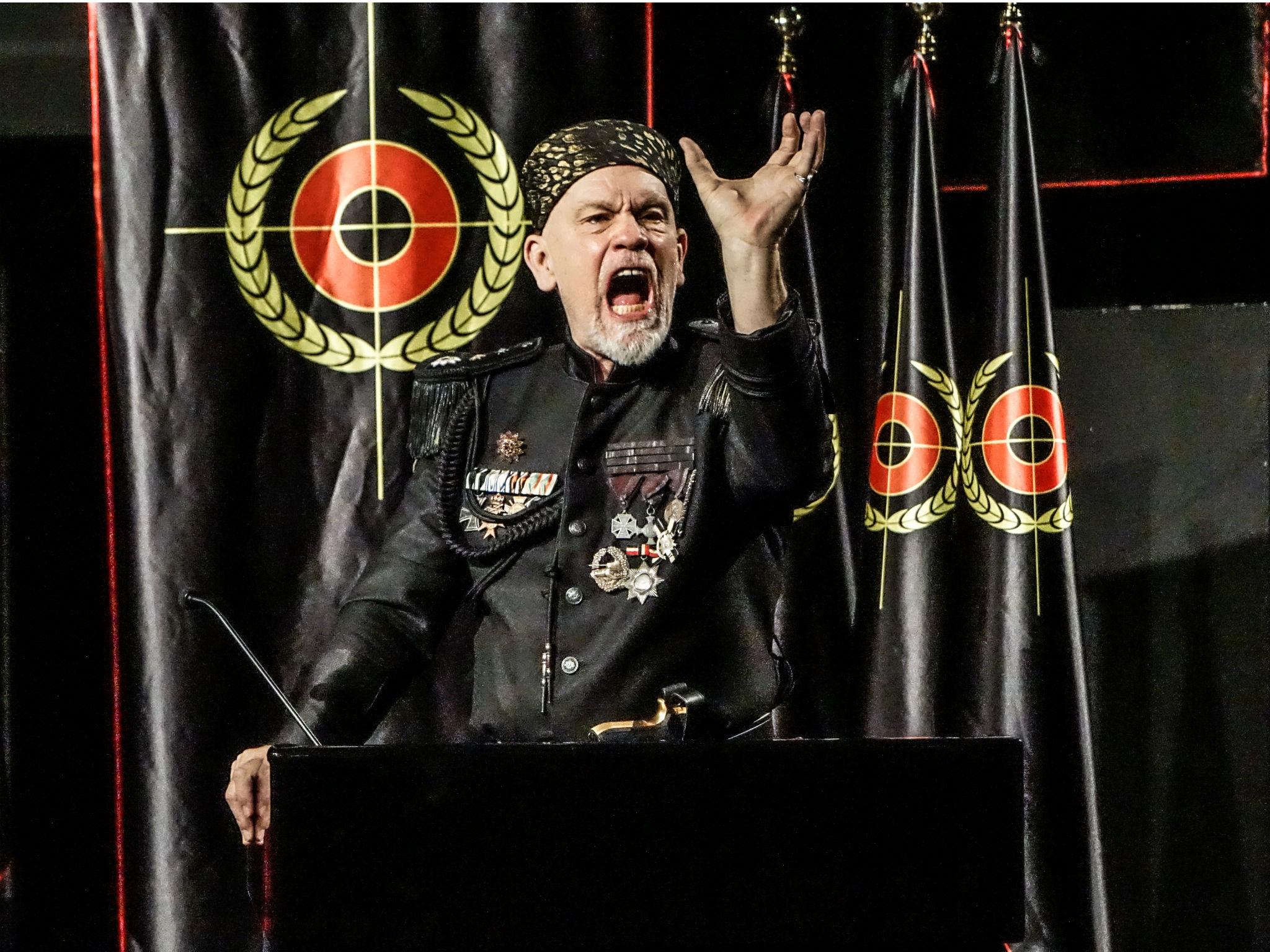Just Call Me God: A Dictator’s Final Speech, Symphony Hall, Birmingham, review: A showcase for John Malkovich's skewed method-acting
The UK premiere of Michael Sturminger’s music-theatre piece stars Malkovich as a dictator on the brink of madness pitted against the mighty Symphony Hall organ

Your support helps us to tell the story
From reproductive rights to climate change to Big Tech, The Independent is on the ground when the story is developing. Whether it's investigating the financials of Elon Musk's pro-Trump PAC or producing our latest documentary, 'The A Word', which shines a light on the American women fighting for reproductive rights, we know how important it is to parse out the facts from the messaging.
At such a critical moment in US history, we need reporters on the ground. Your donation allows us to keep sending journalists to speak to both sides of the story.
The Independent is trusted by Americans across the entire political spectrum. And unlike many other quality news outlets, we choose not to lock Americans out of our reporting and analysis with paywalls. We believe quality journalism should be available to everyone, paid for by those who can afford it.
Your support makes all the difference.From serial killer, via serial seducer, to psychotic ruler: John Malkovich takes no prisoners in his theatre projects and Just Call Me God is no exception. This third collaboration with author Michael Sturminger and musician Martin Haselböck charts the last hour of a dictator’s life, in the company of a TV interviewer and organist Reverend as he gives his sardonic final speech, engages in game-playing (and foreplay) with the journalist then enacts a sudden role reversal.
Seen against live video imagery and Haselböck’s crazed medley of classical and improvised pieces (abetted by Franz Danksagmüller’s distorted electronics), the outcome is a showcase for the hubris, confiding intimacy and skewed method-acting which has ensured Malkovich’s inimitable presence on stage and screen. Problem is this drama provides little insight into the likely thinking of a dictator; predicating gesture and parody over any more cohesive critique.
It hardly helped that Sophie von Kassel’s journalist seemed so stereotyped in her responses, or that aspects of the dialogue were submerged by the organ in Symphony Hall’s resonant acoustic; less of an issue when the production transfers to London’s Union Chapel. Whether any greater depths of character or incident are uncovered is another matter.
Join our commenting forum
Join thought-provoking conversations, follow other Independent readers and see their replies
Comments